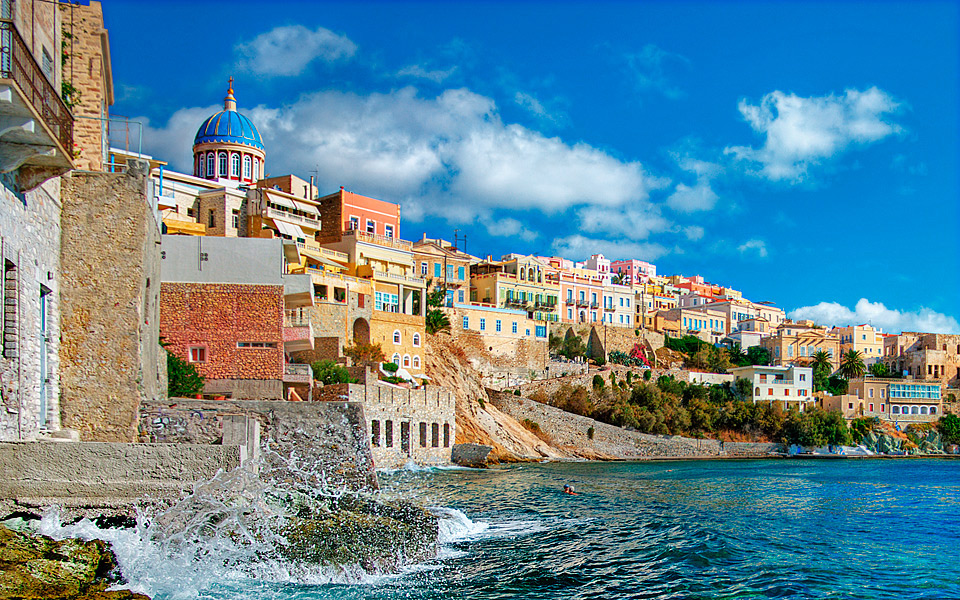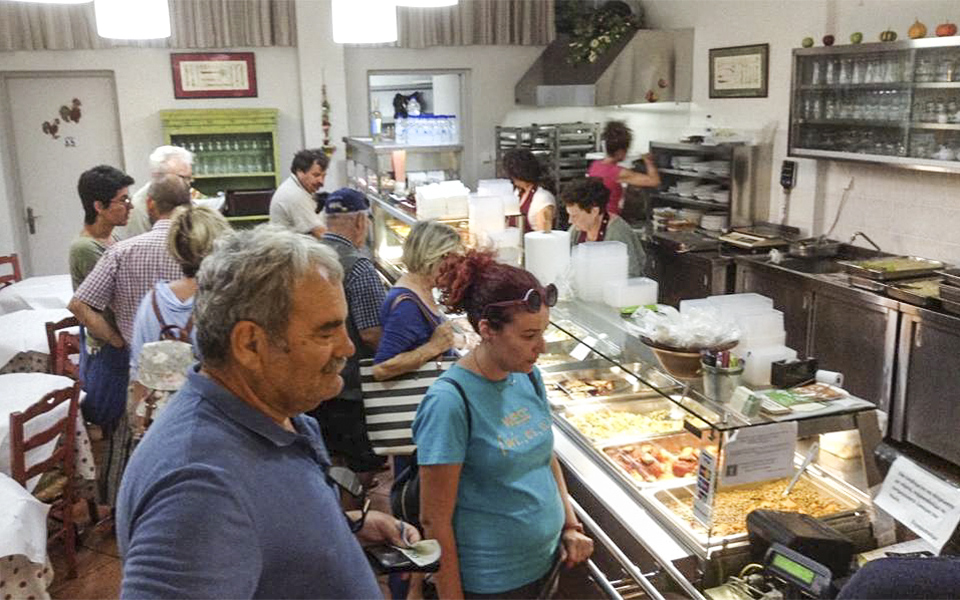A tip from a local recommending Kastri as the place to get great food in Ermoupoli as the ferry boat headed toward the island of Syros was enough to spark my interest – and whet my appetite. “Great quality, good prices and huge portions!” he gushed. “And fresh… all cooked by the women of Syros.”
Kastri is the restaurant of the Women’s Agritourism Cooperative of Syros, a group that was formed in 2000 by unemployed local women with European funding, explains Anna Palaiologou, president of the co-op. “At first we made fruit preserves and liqueurs, but then we realized that it wasn’t sustainable, as the fruit we were using was very expensive,” she says.
The association started branching out by catering for various events, and soon people across the central Aegean island were talking about the high quality of its food. The initial idea had been a kitchen where they’d prepare traditional Greek dishes for customers to take away.
“It was very much an amateur effort at first, but later, thanks to the European funding program, we were able to purchase three professional stoves and equipment,” says Despina Dounavi, an active co-op member since 2004. “Even though the restaurant is in Ermoupoli, our workshop is in the building of the old French hospital, in a space which we fixed up and modified to our specifications. We haven’t hired any extra staff; we do all the pot scrubbing ourselves.
“It was a form of therapy for us, an opportunity to do something outside our homes, to turn what we did on a day-to-day basis into a profession,” adds Dounavi. “Our husbands were a bit put out at first but we stood our ground. We were able to help our children who were away studying or doing their military service, as we had a bit of cash to spare.”
The restaurant started with just four dishes a day, but today diners can pick from 14, which often change, and they’re shifting some 200 portion each day. “We start at 6 a.m., the trays of food are at the restaurant by 11 a.m. and it’s often all gone by 1 p.m.,” says Palaiologou. “Many people call us in the morning to ask us to save a portion for them to pick up by 4 p.m. when we close.” What’s the secret of the co-operative’s success? “We use extra-virgin olive oil and the oil in the frying pans is changed daily,” she adds. “It’s exactly like eating well at home.”

Kastri’s customers are mainly university students and people on low salaries, as well as a growing number of visitors to the island. “We also have elderly regulars who will buy just one portion that they share with their spouse or save half for dinner,” says Palaiologou. The moussaka is the best-seller, says the co-op’s president, adding that Syros does not have its own distinctive cuisine. “The island was populated mainly by refugees who brought their cultures with them, from the West and Asia Minor,” she says.
Any surplus, adds Palaiologou is given to a local shelter, while the association also helps feed a few poor families, “even when we haven’t got any leftovers.” The association, however, is struggling to keep up with growing demand as it now numbers just 12 members from an original 28, as many women dropped out because of old age, health problems, the grueling pace of the work or simply because tight finances made it impossible for them to keep up with their social security contributions.
“By law, if you’re a member of a co-operative, you are responsible for paying your own contributions, which come to around 160 euros a month,” explains Palaiologou. “How can you be expected to hand over that amount when you have a very small income?” So what are the benefits for the association’s members? “Communication, being around so many people,” says Palaiologou without a second thought. “We come here and get away from our problems at home, but it’s also enormously gratifying to have people come and tell you how much they enjoyed the food.”
For Dounavi, the best thing she’s gotten out of being a member of the co-operative is the camaraderie with the other women and the experience of teaching each other new things. She also likes the fact that she makes a bit of extra money for her household and has also attended seminars organized by the EFET food and drug administration. “We learned what to watch out for and now put these lessons into practice at home as well,” she says.












